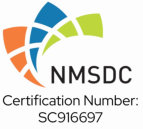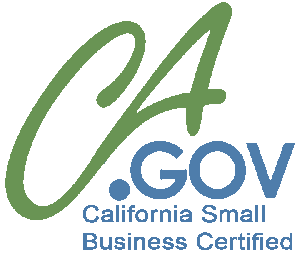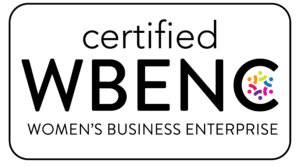You wrote a great resume, applied for a job, and got invited for an interview in healthcare staffing in Mission Viejo, California. But now what?
The interview stage can make or break your chances of landing a job, so you need to be prepared.
Below, we provide our top 10 tips for acing any interview. These suggestions will help you make the best impression possible before the interview, during, and even after your interview.
- Research Your Target Company
Before your interview, find out more about your target company by learning its history (when it was formed, what problem(s) it was made to solve, etc.), work culture, values, as well as ongoing and future initiatives.
Discovering more about the company will help you understand the type of candidates they’re looking for so you can best portray yourself in that way.
Does the company have a product you can test out? Give it a spin! Learning about the business will give you some insight into what the employer’s target market and their strengths (and pain points) are — observations your interviewer will likely be impressed to hear.
Moreover, taking the time and effort to research shows your interviewer you’re thorough and fully invested in the position.To learn more information about your target company, try looking up
- The organization’s official website (especially its “About Us” page)
- The company’s LinkedIn profile and staff profiles (so you can see who you’d likely be working with)
- The company’s social media platforms (Instagram, TikTok, YouTube, Facebook)
- Its online reviews (by using websites like Glassdoor or Quora)
- Relevant news stories about the organization (e.g., search the company’s name on Google News)
- Learn as Much as You Can about the Role You’re Interviewing For
Once you’ve done your research on the company, focus specifically on the position you’re being considered for.
For instance, if you already know what team you’d be joining, try finding out:
- What projects and goals they’ve been working on lately
- The work culture they’ve formed
- how you’d fit in as an active team member
Read the job description carefully so you can learn what your daily duties would be and how your skills and experience align with the position’s requirements.
If the company’s job posting is unclear, look up similar job descriptions online to see what qualifications you’ll need to set yourself apart from other candidates.
Glassdoor, Reddit, and simple Google searches can offer useful information from people who’ve worked in similar roles.
- Use AI to Rehearse Answers to Common Interview Questions
Rehearsing your answers to common interview questions can boost your confidence and help you show up to an interview feeling well-prepared.
Practicing job interview questions and answers ahead of time will help you:
- Hone in on exactly what experiences you want to share and how you plan to express them
- Stay calm and confident during the interview process
- Show employers why you’re the best candidate for the job
- Demonstrate your readiness and interest in the role
And the best part? You can use free generative AI software like ChatGPT to help. For example, try asking ChatGPT to rate your answers to some common interview prep questions like:
- “Tell me about yourself.”
- “Walk me through your resume.”
- “Why are you suitable for this job?”
- “Why did you leave your last job?”
- “Where do you see yourself in 5 years?”
- “What is your greatest strength?”
For instance, here’s a ChatGPT prompt that’ll assist you with answering questions such as: “Why did you leave your last job?”
I’m interviewing for [Job title] at [Company Name/type of company], and I want to answer the question, “Why did you leave your last job?” Here’s my answer: [type out your answer here]. Can you rate my answer and give me specific, actionable feedback?
You can also use ChatGPT to help you generate more interview questions, like this one:
I’m interviewing at a company called [Company Name]. Here’s the company’s job description and an overview of the role: [include the job description and role’s responsibilities].
What sorts of questions could they ask me?
Additionally, you can even ask ChatGPT to judge your answers by acting as a hiring manager:
Ask me to interview questions for a job interview at [Company Name], and I’m going to provide answers.
Give me feedback on my answers as if you’re the hiring manager: What elements of my story stood out? What pieces were missing?Given interview best practices, what did I do well, and what could I do differently?
If you’d rather speak to a real person, conducting a mock interview with a friend or family member can also make a positive impact on your performance.
After practicing how to best phrase your answers, you’ll have a much better sense of what works or what doesn’t.
- Practice for Any Required Skills Assessments
When hiring for some roles (particularly highly technical roles), employers sometimes conduct interviews designed to assess your skills, like inpair programming interviews or technical interviews.
Given the growing demand for technical skills, excelling in these assessments not only demonstrates your current abilities but also highlights your commitment to upskilling, a key factor for long-term success (even outside of the tech sector).
If the application process asphysicians doctors in California includes any skills assessments (don’t worry, they’ll let you know), you should aim to be as prepared as possible.
Find out as many details as you can about the assessment in advance. Spend time practicing beforehand so you’ll be ready to face every challenge and set up for success.
- Deliver Honest and Positive Answers
Providing honest and positive answers about your qualifications shows the interviewer you’re genuine and a good fit for the role.
If your interviewer finds out you’ve been dishonest, it’s a big red flag — reflecting poorly on your character and likely preventing you from getting hired.
So be truthful when answering interview questions and keep your answers positive about yourself and others.
Being honest doesn’t mean you need to point out all the ways your experience doesn’t align with the role. You should frame your experience positively by speaking about your skills and accomplishments and how they translate to the job.
Similarly, refrain from badmouthing previous colleagues or managers. Instead, focus on what you learned and how your experiences prepared you for this new opportunity.
- Pay Attention to Your Body Language
Being aware of your body language and working to improve it (if necessary) can help you present yourself as a self-assured and competent applicant with excellent communication skills.
Interviewers also pay attention to your body language (whether they realize it or not), so show them you’re excited to be there and capable of doing a great job as their potential employee.
How to Present Yourself Well in an Interview
- Shake your interviewer’s hand firmly to show you’re a professional applicant.
- Keep your posture upright but relaxed while sitting so you look comfortable and confident.
- Make eye contact with the interviewer and smile or nod when it’s appropriate.
- Be polite and keep your tone professional as you’re speaking.
- Keep an open stance and avoid closed-off postures (such as folding your arms across your chest).
- Find a comfortable position for your hands to keep fidgeting to a minimum.
- Keep both of your feet on the ground to avoid any unnecessary movement (such as shaking or shuffling).
- Discuss Specific Examples (And Results) of Your Work
In addition to the questions that interviewers might ask, come prepared with specific examples demonstrating your strengths, skills, and experience.
For example, if you’re interviewing for a job as a medical receptionist in California or a project manager, think about examples from past projects that showcase your ability to work well with others, manage a budget, and stick to timelines.
Your interviewer wants to know what you’re capable of, so quantify your accomplishments with hard numbers that demonstrate results.
It’s helpful to have in mind some key achievement-related metrics you want to share so that when the right question comes up, you can slip them into your answer naturally.
If you’re not sure how to effectively answer behavioral interview questions (like “Tell me about a time you disagreed with a colleague”), try framing your interview answers using the STAR method.
STAR stands for:
- Situation
- Task
- Action
- Result
- Take Your Time to Respond
When you’re answering questions on the spot, you don’t always have an answer at the ready. And that’s okay. It’s better to take a moment to think about your answer than start to ramble without a clear idea of what it is you’re trying to say.
Interviewers know thoughtful answers take time, so if you need a moment to think about it, ask for a minute. A simple “Do you mind if I take a moment to think of a good example?” isn’t going to have a negative impact.
Similarly, if you’re getting off-track with an answer or you realize you’re not entirely sure what a question meant, ask for clarification.
Not only will asking for clarification help you give the interviewer exactly what they’re looking for, but it’ll show them that you’re not afraid to admit when you don’t fully understand something or need further direction.
- Prepare a List of Questions for the Interviewer
At the end of your meeting, your interviewer will likely ask if you have any questions for them.
Not only does having a list of thoughtful and well-researched questions show you’re engaged and genuinely interested, but it also gives you the chance to gain insight into your potential new company.
If you’re curious about team dynamics or the company culture, now’s your chance to ask! What information will help you decide if this company and role are a good fit for you?
- Good Questions to Ask at the End of Your Interview
- What do you personally enjoy about working here?
- What does success look like in this role, and how will you measure it?
- What are the biggest challenges facing your company right now?
- Can you describe the company’s culture and core values?
- Can you tell me more about the team I’d be working with?
- When can I expect to hear back from you next?
- Inappropriate Questions to Ask at the End of an Interview
- What’s your pay like?
- What does your company do?
- What benefits do you offer?
- How quickly can I get promoted?
- How much vacation time do employees receive?
- Why did the company fire so many people last month?
- Follow up at an Appropriate Time
- Making a positive professional impression
- Connecting with the interviewer in a genuine way
- Effectively communicating your value and marketable skills
- Using memorable stories and metrics to sell their candidacy
- Demonstrating that they have the soft skills needed for the position
- Showing authentic interest and curiosity
- What Do You Need for a Job Interview? Here’s what you should bring to an interview:
- Multiple copies of your resume
- A list of references
- Any supporting portfolio or work you want to share with your interviewer
- A paper and a pen, if you’d like to take any notes
- Any questions you want to ask
- What Are Some First Job Interview Tips? Here are some tips for preparing for your first job interview:
- Prepare to answer the most common interview questions. It’s just like studying for a short answer exam!
- Focus your answers on your academic achievements and professional goals. If you don’t have professional work experience, you’ll have to rely more on your education to demonstrate your qualifications.
- Practice with a friend beforehand. Even if your friend is nothing like the interviewer, just playing it out can help you get a feel for what it’s like to answer the questions.
- Find a professional outfit that makes you feel confident. Going into an interview feeling overly self-conscious can hamper your ability to open up and engage.
- Take time to relax before your interview. Feeling panicked or stressed might show, or worse, be contagious. So, take some time to get into a calm headspace. It’s okay to be nervous, but just remember that your interviewer wants you to succeed.
- How Do You Stand Out in an Interview?
Shaping your answer using these four components helps you structure your answers logically, stay on track, and give employers a clear understanding of your experience and accomplishments.
After your interview, follow up with the interviewer by sending a thank you email or letter within 24 hours.
A thank you email also allows you to clarify any details that may have been unclear during the interview process and to restate any key skills or experience you think would make you a good fit for the position.
Next, if you still haven’t heard back from your interviewer past the time they said they’d contact you, following up with them is acceptable.
To successfully follow up after an interview, wait at least a week (or past the specific date for when the company said they’d reachout to you) before sending your interviewer an email.
Rather than acting like you’re bothering the interviewer by following up, frame your email professionally and assertively by politely stating why you’re contacting them.
Here’s an example of how to send a follow-up email after an interview:
Subject line: Following Up
Hello [Interviewer’s Name],
I hope you’re doing well! I just wanted to follow up regarding our interview last week and see if you have any updates.
I had a wonderful talking with you and learning more about [Company], and I’d love to further discuss how my [relevant skills] could benefit your team.
I’d be happy to provide any additional documents if necessary. Don’t hesitate to reach out.
Thank you again for your time, and I look forward to hearing from you soon.
Best Regards,
[Your Name]
Frequently Asked Questions About Job InterviewsHave more questions about job interview best practices? Check out our answers to some commonly asked questions below.
What Makes a Good Interview?On the candidate’s part, what makes a good interview is:
You stand out in an interview by connecting with your interviewer, effectively demonstrating that you’re a good fit for the role, and clearly expressing what value you can provide for the company.
If you can show that you have all the hard skills they need and that you’d mesh well with the company and team, then you’ll be a strong candidate.
To really stand out from the other applicants, focus on making your answers memorable by creating a compelling narrative and adding hard numbers that show what tangible results you’ve achieved and back up your skills. Contact OCEANS Medical Staffing for more tips!
Disclaimer
Blogs, content and other media uploaded online are for informational purposes only. Contents on this website should not be considered medical advice. Readers are strongly encouraged to visit their physician for health-related issues.





Leave a Reply